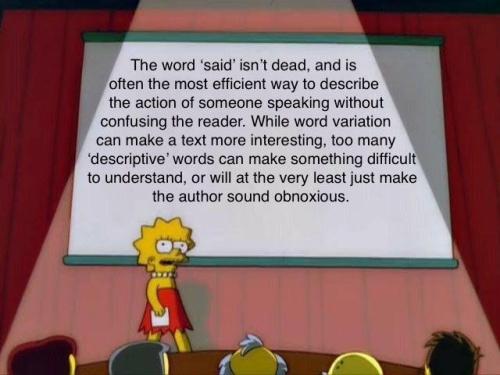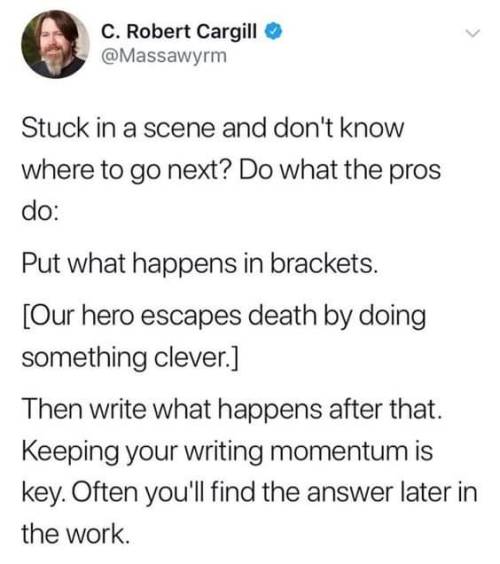Latest Posts by laylabsposts - Page 5
Halloween scare reddie x daughter
summary: can you do a reddie x daughter, halloween w the losers edition?
A/N: I’m sorry it’s so short, I hope you still like it though!

Ellie bit from her candy covered apple, hurrying to wipe away a piece of chocolate that broke off from the rest of the snack and onto her costume, hoping her dad hadn’t caught on. A quick peek up proved that he hadn’t, to busy gripping her hand so tightly her skin turned white around the pressure. Her pops, on her other side, was holding onto her shoulder, talking with uncle Stan, ushering her closer any time Ellie slightly stayed from his side.
Keep reading
Werewolf Boyfriend: Max

I woman hope for a new start, a new recovery, moves to Hearthway Hollow to help someone else recover.
Female Reader x Male Monster
I’ve always had to be careful in life. I took ballet to learn to be graceful and thoughtful with my movements. I decided to study for a job that would allow me to avoid any accident or peril. But life is hard to control, and you don’t get to pick and choose when you bump into things, fall over, or get a nosebleed.
I got my first nosebleed when I was still an infant. It sent my parents into such a panic, they still talk about it like it happened not too long ago. Hemophilia was common on my dad’s side, they just never realized what it was. Ever since my grandfather’s time, they called themselves heavy bleeders. I got the worst of it. Any time I got a nick or cut, I bled like I was in a horror movie with an massive special-effects budget. Even worse, my nosebleeds happened regularly. I would get too dry, and bam! I stopped wearing anything other than black to keep from staining my clothes.
I had to give up ballet because my teachers were worried I would start bleeding on the stage. I hated that because I really did love dancing. I graduated high school early, and learned that even if I was the ‘kid with a bloody nose’ during college, that was fine with people. I changed the focus of my studies and became an art restorer. I learned to wear gloves and a mask when I did the work; it would catch the blood, and I would have very little worries. Studying art history seemed like the safest thing in the world for me.
Keep reading

me when i look @hockey boys.
"Oh, Geralt, I think it's broken!" Jaskier wailed from where he was sat in the mud.
Scowling, Geralt bent to inspect the ankle in question, the one Jaskier had turned when he slipped on the wet ground. He poked at it and Jaskier moaned.
He rolled his eyes. "It's not broken," he said gruffly. "Just twisted. You'll have to keep your weight off it."
Jaskier's face scrunched up in distress. "Then whatever am I to do?" He waved his arms in the air with great dramatic intent. "For I am all alone in the wilderness, miles from civilization, and now incapable of walking." He wound himself up into a full performance. "The wolves will come for me and I shall surely die here!"
Geralt suppressed a smile. "I'm sure we can figure something out."
He pondered Jaskier with mock contemplation while Jaskier gave him soft, pleading eyes. He threw in a little lip tremble for full effect.
"Fine," he grunted eventually. "If we must." He scooped Jaskier up into his arms in a bridal carry and lifted him into the air.
Jaskier squealed with delight and threw his arms around Geralt's neck. "My hero," he declared, dropping a kiss onto his cheek.
The bard really was an idiot. He tucked him into his chest and fought back a blush.
Aizawa tells Eri fantastical stories about how he lost his leg.
“A dragon bit it off,” He tells her with a nod at the cane that’s already decorated with Eri’s stickers. “I barely felt it.”
He isn’t sure if she believes him but at least she doesn’t know the truth.
He can’t bring himself to ever tell her- that the real reason it’s gone is because he had to cut it off himself to stop the spread of the quirk erasing bullet, a bullet made from Eri’s own body.
He’d much rather her think that a dragon bit it off, as illogical as it sounds.
No one else is allowed to tell her.
“What kind of dragon was it?” Eri presses him one morning when Aizawa’s still in the rehab hospital. “What color?”
“Red,” Aizawa immediately answers. “It was a big one. It didn’t breathe fire but it had the biggest teeth I’ve ever seen.”
“It didn’t breathe fire?“ Eri is incredulous. For a six year old, she’s smart. She’s probably never heard of a dragon that doesn’t breathe fire.
So Aizawa tells Mic to get her a book on dragons and he brings back a huge, thick hardcover book that Eri immediately delves into.
The girl can barely read and she’s got her nose in this huge 500-page book filled with pictures and stories about dragons. Aizawa has to help her with words every few seconds and eventually she curls up with him on the hospital bed so they can read together.
At one point, Aizawa sees a picture of a giant red dragon with huge teeth.
"That one,” He says, pointing at it. Next to him, Eri startles, turns her wide red eyes to the drawing. “That’s the one that bit my leg off. But I won.”
“Woah,” Eri cooes, staring at the picture as she holds the giant book in her tiny little hands. “Those teeth are big. Did you kill it?”
“No,” Aizawa says, thinking of Shigaraki. “But he won’t be coming back anytime soon.”
At least, that’s what he hopes.
Aizawa can hope, can’t he? He can as long as Eri’s here, curled up at his side, her mind full of ideas and images of dragons. She’s probably picturing the battle right now, of Aizawa fighting a giant red dragon.
It doesn’t hurt her to let her believe this.
But it would hurt her if she knew the truth.
So Aizawa lets her believe that some fantasy creature bit his leg off- because he doesn’t want her to know that it was a bullet made from her own body that made him cut it off.
As long as Aizawa has a say in it, she’ll never find out.
Whenever she becomes skeptical…
…He’ll just make up another story for her.
Me: *hasnt finished my WIP*
Also me: *already planning a sequel*
You ruin your life by desensitizing yourself. We are all afraid to say too much, to feel too deeply, to let people know what they mean to us. Caring is not synonymous with crazy. Expressing to someone how special they are to you will make you vulnerable. There is no denying that. However, that is nothing to be ashamed of. There is something breathtakingly beautiful in the moments of smaller magic that occur when you strip down and are honest with those who are important to you. Let that girl know that she inspires you. Tell your mother you love her in front of your friends. Express, express, express. Open yourself up, do not harden yourself to the world, and be bold in who, and how you love. There is courage in that.
— Bianca Sparacino
Me: *hasnt finished my WIP*
Also me: *already planning a sequel*

I can’t write these scenes bro I just can’t

Write down everything that happens in the story, then in the second draft, make it look like you knew what you were doing all along. -Neil Gaiman
writing advice for all forms of media: make the stakes high!! make the world about to end!! put everyone’s lives on the lines! their loved ones! their sanity!!
YOU NEED HIGH STAKES FOR PEOPLE TO CARE
one of the most popular games of 2019: *Goose game with literally some of the lowest stakes, a goose throws your mail away and doesn’t care, goose steals socks, goose cannot die, everyone is having a blast*
Your character is driven by 3 emotional motives. See? I even made a graphic.

(I’m proud of the graphic, too.)
Mood: The immediate (and temporary) emotions of your character. A feeling of joy after kissing the girl they like; frustration after a busy day working a summer job at the fair; despair after somebody eats the last Oreo.
Situation: The plot and relationship contexts of your character. The apprehension they feel with a friend in the weeks following a nasty fight; the nerves felt in the week leading up to their big championship game; the frustration and boredom of being grounded after crashing the family car into the county creek.
Struggle: The core, deepfelt pain of your character, which often emerges from their background. The fear of failure from overly demanding parents; a deep longing for a family they never knew; a desperate need to be accepted after spending years as an outcast.
How these 3 motives influence your character
The above emotional motives all play an important role in driving your character’s actions, muddying or even overriding their more logical intentions — just as it happens to the rest of us. (We’re all human, after all.)
That being said, while your character’s mood and situation will shift throughout the story, their struggle will remain constant: their true north, emotionally speaking. This struggle will always be at the root of their actions, even as you swap in new situations and moods.
Take Bethany as an example
Let’s say your character’s name is Bethany, and her struggle is this: a deep fear of failure, stemming from her parents’ impossible academic expectations, which conflicts with her own desire to finally experience the life she sees passing her by.
Her actions, while primarily driven by that struggle, are going to vary quite a bit depending on her situation and mood. For example, if it’s the night before a big test, she might blow off a friend’s invitation to a party so she can study.
But if the party is a week before the big test, and she finds a handwritten invitation in her notebook from Emma (the girl on the lacrosse team she has a crush on), Bethany might act differently. Maybe she feels a lightness and warmth in her cheeks as she reads Emma’s note. Maybe she puts those textbooks away, and maybe, just maybe, she sneaks out the window and goes to the party.
But if Bethany finds the note after her parents just chewed her out for being ungrateful and not studying hard enough? Maybe Bethany doesn’t go to the party. Instead, maybe she reads Emma’s note, trembles, then rips it in two, knowing she can’t disappoint her parents like that. Then she spends the rest of the evening studying. Alone.
Mood. Situation. Struggle.
All three kinds of emotional motives are important. Your character’s struggle is the anchor, but their mood and situation are the ever-shifting masks you use to express their struggle in fresh ways.
And by the end of the story, hopefully your character will overcome their struggle — putting away the textbooks, sneaking out the window, and meeting their crush at a party. Maybe even having their first kiss.
Whatever the character, and whatever their struggle, I’m sure you’ll do great.
So good luck! And good writing.
— — —
Your stories are worth telling. For tips on how to craft meaning, build character-driven plots, and grow as a writer, follow my blog.
A story should entertain the writer, too.
Stephen King (via writingdotcoffee)
YOUR WRITING IS GREAT
your writing is great
your writing is great
YOUR WRITING IS GREAT
your writing is great
YOUR WRITING IS GREAT
YOUR WRITING IS GREAT
and don’t you forget it

So, I’m writing
How to write a character-driven plot

The Character-Driven Plot Wheel
1. Emotions drive actions.
Make your hero act on their deepfelt emotions. This not only adds meaning to their actions, but also helps communicate to readers your hero’s core emotional struggle.
2. Actions trigger consequences.
When your hero acts, give their actions consequences that affect the plot, themselves, and/or the surrounding characters. For example, driven by curiosity, maybe your hero opens Pandora’s box; maybe they act recklessly and someone dies; or maybe they stand up for what they believe in, but at great personal cost. Consequences raise the stakes and empower your hero with agency.
3. Consequences compel change.
Use the consequences of your hero’s actions to create a crucible of growth — challenges and situations that force them to take the next step on their character journey. That step may be forward, or backward, and it may be large or small; but something inside them changes.
4. Change influences emotions.
When a character goes through a change, even a small one, allow it to affect them emotionally. Maybe they feel increasingly frustrated or guilty. Maybe they’re afraid, having just taken another step closer to abandoning their old way of seeing the world. Or maybe they finally feel peace.
Regardless of the form it takes, remember to reflect your hero’s change in their emotions. Then let their emotions drive action, to trigger consequences, which will compel further change.
Lather. Rinse. Repeat.
And there you have it! That’s how you write a character-driven plot.
So what do you say?
Give the wheel a spin.
— — —
Your stories are worth telling. For tips on how to craft meaning, build character-driven plots, and grow as a writer, follow my blog.

to all my writer friends out there.
Me: *is the writer*
Me, after I write a twist: oh shit! I did not see that coming!
one of the best pieces of writing advice i’ve ever gotten:
if a scene isn’t working, change the weather.
it sounds stupid, but seriously, it works. thank u to my screenwriting professor for this wisdom

do i need to say more
How to write about Grief:
There is no right or wrong way to experience grief. Just as there is no right or wrong way to write it. Everyone is different, each set of circumstances are different.
The point of this post is to show you how different people react in different ways, and give points on how you might write that, depending on your character and story.
Reactions to Grief
Numbness: Your character may go into auto-pilot and be unable to process the events that have unfolded.
Anger: This can be aimed at other people, at a Higher Being, or at nothing in particular.
Unsteady: Your characters may be unsteady. For example, unable to stop their voice from shaking or they may find it difficult to stand.
Focusing on Others: Your character may disregard their own feelings because they are so overwhelmed and instead concentrate on someone else’s well-being.
Seek out routines: Amid upheavals, your character may seek comfort in tasks that are familiar and “safe,” such as working, cleaning, making their bed, making absurd amounts of tea or taking a morning walk.
Pretending that Everything Is Okay: Grief is viewed as an emotion that should cease or be concealed once the funeral is over. So people mention the news in an offhand comment, then talk and laugh as if all is right with the world.
Denial: Some people deny the reality of death and convince themselves that the news is a joke or can’t be true.
Reactions from people surrounding your character:
People may avoid your character as they do not know what to say or simply can’t find the right words.
Some may even go as far as to cross the street when they notice your character approaching.
Even people that the character has known for years may act strange or standoff-ish, simply because they don’t know what to say.
On the other side of that, some people may be overly helpful and friendly.
It is not uncommon for estranged friends, family or others to suddenly reappear in a person’s life after they have experienced grief.
Either because those people want to offer their support and love or because they’re being nosy and they want to be kept up to date on the “drama”.
Most people will move on from the event fairly quickly if they weren’t emotionally invested.
Some people may even get annoyed at your character for still being upset weeks or months later.
When talking about the person they have lost:
Your character may recall a memory or tell a story about their loved one, these are possible reactions. (I have encountered all of them.)
Your character may being to cry or get upset at the thought of the person they have lost.
The person they are talking to may become awkward and avert eye contact when your character brings up the person they have lost.
Others may ask or tell your character to stop talking about the person they have lost. They may roll their eyes, cough awkwardly, or cut off your character mid sentences so that they can change the subject.
Some people may ask inappropriate questions about the circumstances in which the character’s loved one passed away. Depending on the personality of your character then may react differently.
Other things to note:
Grief is not constrained by time.
One of the main problems with grief in fiction is that a character is typically heartbroken for a couple scenes and then happy again. But grief does not evaporate because the world needs saving.
Allow your character to wrestle with their grief.
Your character may feel guilty. Your character may feel a twinge of guilt when they laugh or have a good time with someone else; when they do something to remind them that they’re alive, and their loved one isn’t.
Grief is a game changer. A previously outgoing character may withdraw and isolate themselves. Some people may take grief and/or bereavement as a sign that life is too short; they may make big decisions in an attempt to make themselves feel better and grow away from their pain.
Sometimes grief can help you find your purpose.
At first grief can be all consuming. It hurts and you can’t really control it. It may seem unrelenting. Eventually the grief will become easier to deal with, your character may find the days to be better, but that doesn’t mean that when the grief hits it doesn’t hurt any less.
For most people, grief never really goes away. “Sometimes you have to accept the fact that certain things will never go back to how they used to be.”
It is rare that a person will ever give a long speech about their feelings, a lot of people struggle to even find the words. But that’s okay. Show the reader how your character feels, rather than just telling them.
Don’t pause the plot to deal with the aspect of grief. This could overwhelm the readers and drag the pace down. In reality, life doesn’t just stop due to grief, the world keeps spinning and things still need to be done. Use the character’s grief as a backdrop for the story’s events.
Yes, grief affects the character’s day-to-day life, goals, and relationships. But it shouldn’t drive readers away or stagnate the story. Instead, should engage readers and produce empathy that keeps them turning pages.
You don’t need to tell your readers that everything will be fine. You don’t need to provide all of the answers.
“Skirting grief and treating it lightly is easy. But by realistically portraying it through a variety of responses and its lasting effects on the character’s life, readers will form a connection with your characters.“
Me: *stops writing* well that’s enough writing for now
Me: *later* Alright time to write!
Me: *staring at where I left off*

WORDS TO USE INSTEAD OF: RUN / RAN
Do you ever find yourself over-using the word “run” (or “ran”) in your writing? Try using these words instead:
sprint / sprinted
dash / dashed
dart / darted
bolt / bolted
race / raced
speed / sped
hurry / hurried
jog / jogged
bound / bounded
hustle / hustled
scurry / scurried
tear / tore
rush / rushed
charge / charged
barrel / barreled
zoom / zoomed
scuttle / scuttled
scamper / scampered
book it / booked it
leg it / legged it

I was shocked when I realized this 😳

My favourite (UNDERRATED) writing techniques | Authortube
Did y’all catch last week’s upload? I chat my top ten (underrated) writing techniques, including some that I made up lol! What are your favourite writing techniques?
Lookin’ for Writeblrs 👀
So I have a lot of lovely mutuals, but I always love finding new writeblrs so here goes! Feel free to interact with this post if you’re a writeblr, and tell me a bit about yourself and your WIPs if you like so I can follow you!! I’m an especially big fan of:
Sci-fi/fantasy/contemporary genres (although I like most genres! these are just my faves!!)
Found family!!
Funky diverse casts
Preferably nothing too NSFW as that stuff makes me uncomfortable :/
Anything with cool imagery and/or symbolism!!!!
Pros of writing a superhero AU: interesting conflict, moral dilemmas, awesome fight scenes, snarky banter, angst possibilities, fun power sets, world-building possibilities–
Cons of writing a superhero AU: what the fuck are their powers and what the fuck do I name them
I love my wall decor ~🥺🖤

*slaps roof of WIP* this bad boy can fit so much dialogue in it
